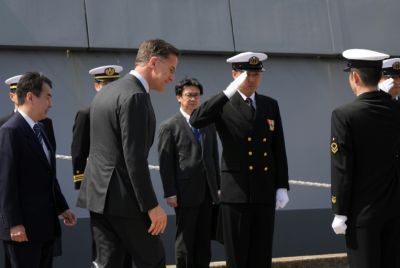Canada’s Hacking Charges on China Strains Bilateral Ties

Canada's open slamming of China for the NRC cyber attack has snowballed into open spat between the two sides. China, in its latest rejoinder, charged Canada of hurling baseless allegations on it, reports Globe and Mail. In a statement, China's foreign ministry rebuked Canada for making "irresponsible accusations that lacked credible evidence" in the matter of Chinese hackers having attacked the National Research Council's (NRC) vital computer networks.
However, Canada stood by its charge that a highly sophisticated Chinese state-sponsored actor had broken into its NRC network. The NRC is Canada's apex research body and works with major companies in aviation and railways, including Bombardier.
Interestingly this is the first time that Canada is taking the name of China openly for the cyber attacks on it. In 2011, hackers broke into computer systems at Canada's finance ministry and other government departments.
Hurting Relations
China expressed its sense of anguish and hurt at Canada's open charges at a Prime Minister Stephen Harper's visit to Beijing is due in a few months. The Chinese leadership suggested that baseless charges can hurt the relations. China made it clear that it opposes all kinds of hacking and urged Canada to change its perception and stop blaming it.
Oil Diplomacy
The strain in ties comes in contrast to the warm vibes that Stephen Harper had displayed to China. In 2012 soon after U.S. President Barack Obama hinted to Mr Harper that there would be delay in the Keystone XL pipeline meant to carry huge volumes of Canadian crude to American markets, Mr Harper reached out to China with a Plan B to sell the crude to them.
The Canadian PM mooted the plan of a pipeline from Alberta to the Pacific Coast from where it could be shipped in tankers to China.
Ignore Chinese denials
David Mulroney, Canada's former ambassador to China, told Global Mail that the NRC event is hardly the first in Chinese espionage on Canada. In spite of it, Canada must manage the relationship with China that presents a precarious balance of risk and reward.
At the same time, Mulroney warned that the sanctimonious denials of China must be ignored. He said despite China's doctrine of non-interference, it carries a one-sided view on how it should work. The former ambassador is of the view that China's industrial development strategy heavily relied on spying as a means of acquiring key technologies.




















